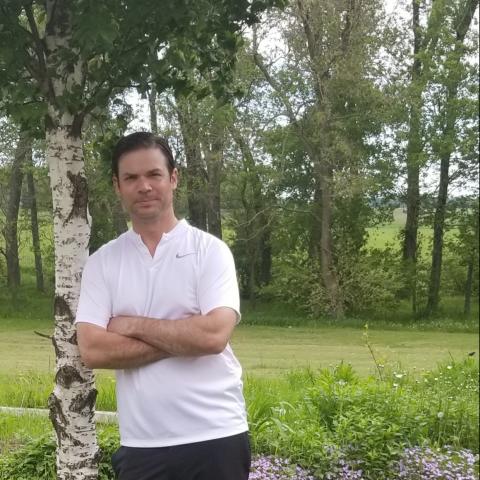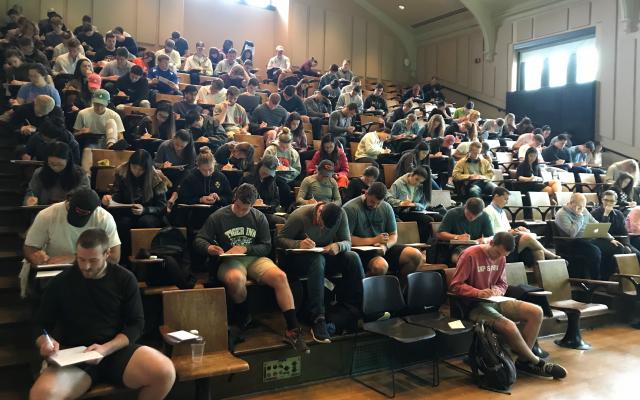
Michael comes from a background in law (Northwestern Pritzker’s School of Law, MSL), design (MIT Sloan School of Management, cert.), ethical philosophy and religious studies (Durham University, Ph.D.), and GIS (University of Alaska Fairbanks, cert.). Michael has held fellowships and lectureships at Yale, Harvard, and l’École normale supérieure, Paris. Michael was the recipient of the Alexander von Humboldt award, spending three years at Universität Tübingen. He was also elected a senior fellow at the Institute of Advanced Studies at Corvinus University in Budapest, Hungary.
What will students be able to take away from your (Keller Center) classes?
My fundamental interest, in both my current research and in guiding students through teaching and advising, is to ponder the deep interconnection between life's natural processes and the histories of institutions and sectors as a tool to discern the leading edge of innovation in any given industry. My classes are applications focuses, case study heavy, and invite students to experiment with their growing ambitions in their assignments in dialogue with the "more-than-human-world."
What are your responsibilities at the Keller Center?
I teach two classes: EGR 301 and EGR 501. I have also advised senior theses to successful completion. My current research is in areas of STEM industry ethics and policy; environmental law; animal welfare; and the history of innovation, technology, and social impacts. I also do a fair amount of advising at the corporate level on matters of ethics, trust, values alignment, and regulatory strategy. I'm always keen to talk with students about their ideas, ambitions, and projects.
What attracted you to the Keller Center?
The merging of engineering with innovation while fostering an awareness of social impacts.
How are you involved with the Keller Center?
I teach two classes: I co-teach Engineering and Ethics (EGR 501) to the PhD students in SEAS; and I teach History of Entrepreneurship (EGR 301) to undergraduates.
What do you appreciate most about the Keller Center?
I appreciate how faculty and staff are aligned in providing Princeton students an opportunity to explore their "personal project" in applications-focused courses and events.
